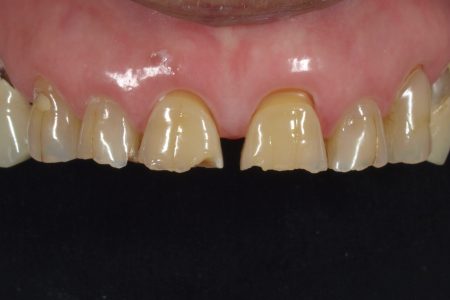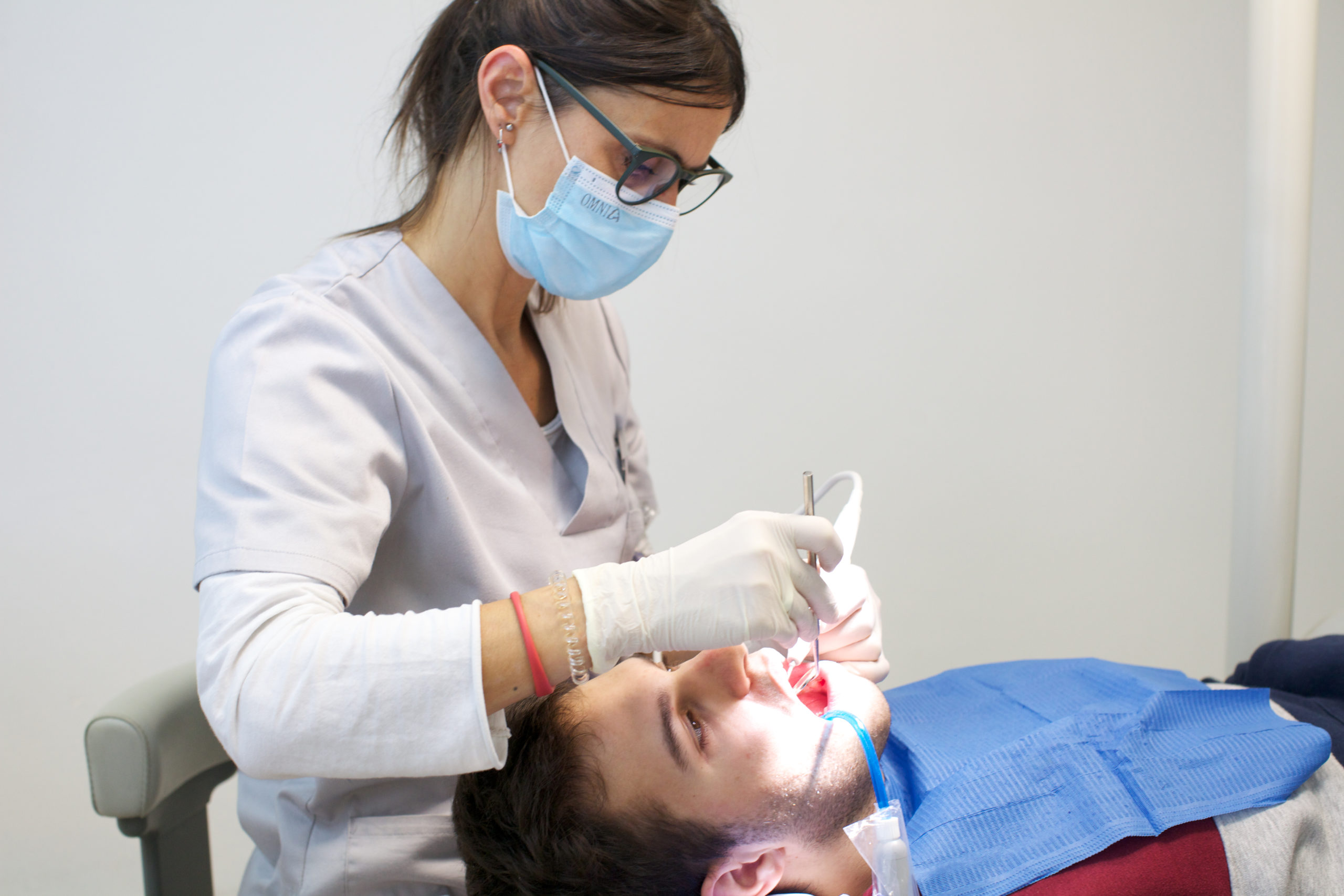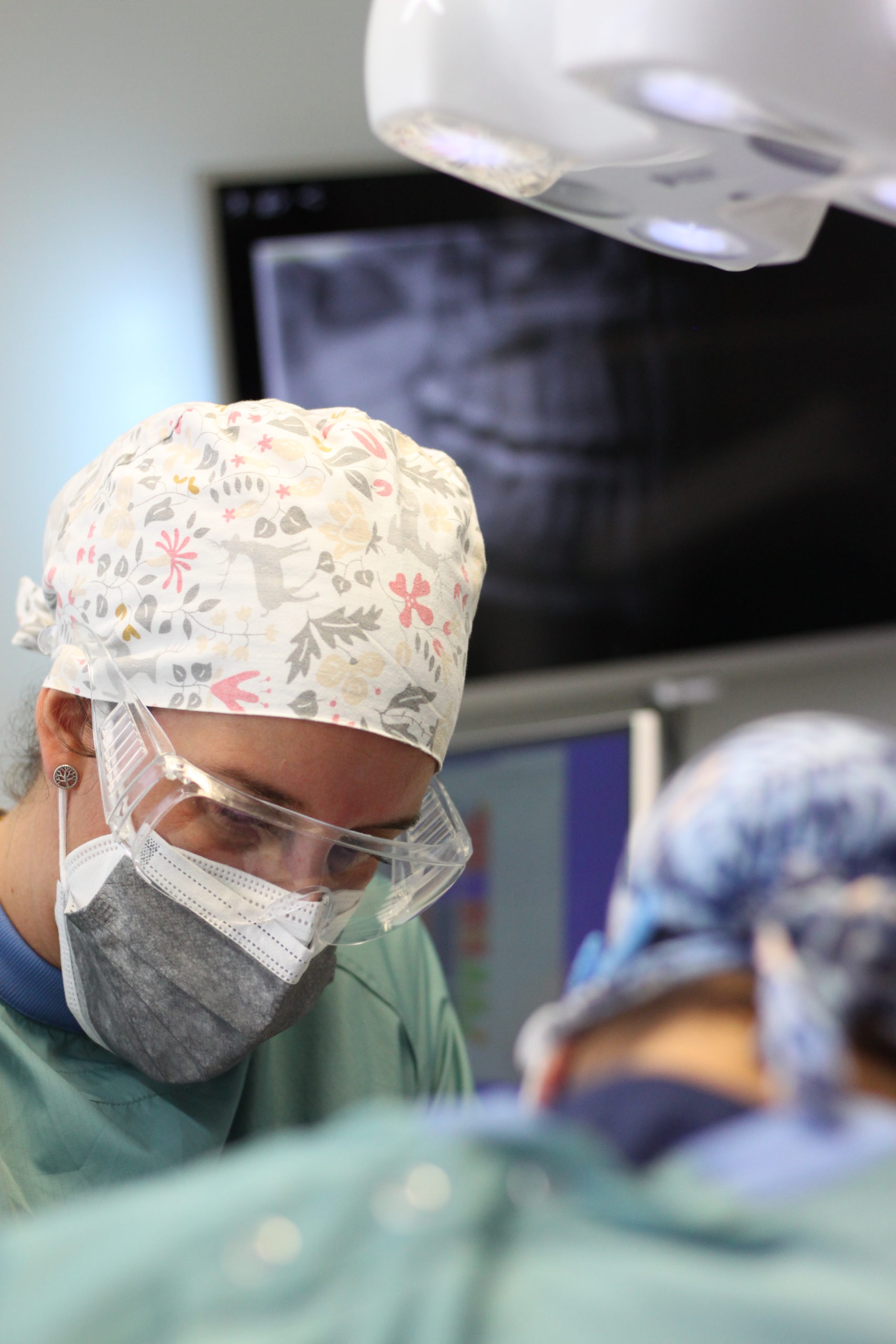PREVENTION
Prevention and oral hygiene are the way to always enjoy good dental health!
This is the axis around which the activity of our clinic revolves since its foundation in 1983.
If a patient, for whatever reason and regardless of their age, is not able to keep their teeth free of bacterial plaque, the mouth and teeth are prone to disease and our treatments will not be as successful as they should be. could achieve
Today’s mouths have 4 serious threats :
- Refined or industrial food, which nourishes the germs that cause tooth decay and gum disease.
- Toxic substances, such as tobacco and alcohol.
- Bruxism, which makes the whole mouth work many extra hours (right photo).
- The fact that we now live many more years and therefore must stay many more years in a healthy state.


At Clínica Dental Gaset Lacasa we know the importance of oral hygiene in order to keep the mouth healthy in the face of these threats and challenges and that is why we always make our patients aware and communicate to them the need to visit our oral hygienists periodically, the Miriam Bonada theAlvaro Torres.
Professional oral hygiene is a practice that consists of:
· Carefully remove the calculus attached to the teeth and gums.
· Carry out a series of control radiographs.
· Teach the patient the places where he gets more calculus and how to brush to avoid its accumulation.
· Offer, if necessary, food advice to reduce threats.
· Register the data obtained so that they are comparable over time and see their evolution.
· Check that there is no dental pathology, such as caries, gingivitis or periodontitis, bone abnormalities, soft tissue diseases, bruxism, TMJ dysfunction or oral cancer.
· Arrange the next appointment in order to avoid the discontinuity of the prevention or make an appointment with the doctors in case it is necessary.

Professional oral hygiene is a practice that consists of:
· Carefully remove the calculus attached to the teeth and gums.
· Carry out a series of control radiographs.
· Teach the patient the places where he gets more calculus and how to brush to avoid its accumulation.
· Offer, if necessary, food advice to reduce threats.
· Register the data obtained so that they are comparable over time and see their evolution.
· Check that there is no dental pathology, such as caries, gingivitis or periodontitis, bone abnormalities, soft tissue diseases, bruxism, TMJ dysfunction or oral cancer.
· Arrange the next appointment in order to avoid the discontinuity of the prevention or make an appointment with the doctors in case it is necessary.

